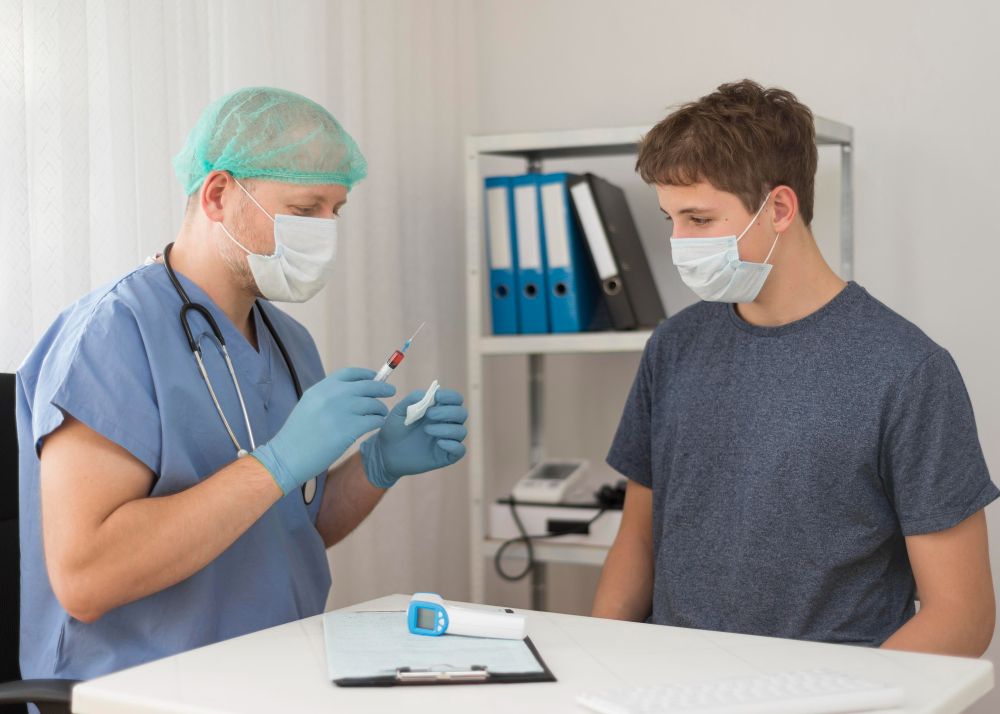Introduction
Undergoing surgery can be an overwhelming experience, and one crucial step in ensuring a safe procedure is the Pre-Anesthesia Checkup (PAC). PAC tests are essential medical evaluations conducted before administering anesthesia, helping doctors assess a patient’s overall health and minimize potential risks. But what exactly happens during a PAC test, and why is it so important?
This article will walk you through the significance of PAC tests, what to expect during the evaluation, and why these screenings can be lifesaving. If you or a loved one is preparing for surgery, understanding this process can help ease concerns and ensure a smooth medical experience.
What Is a Pre-Anesthesia Checkup (PAC)?
A Pre-Anesthesia Checkup (PAC) is a series of medical evaluations conducted to determine whether a patient is fit to undergo anesthesia safely. This assessment helps anesthesiologists tailor anesthesia plans based on the patient’s medical history, current health status, and potential risk factors.
Importance of PAC Tests
- Identifies underlying health conditions that may affect anesthesia administration.
- Helps anesthesiologists choose the safest type of anesthesia for the patient.
- Reduces the risk of complications such as allergic reactions, breathing difficulties, or blood pressure fluctuations.
- Ensures proper medication adjustments before surgery.
What to Expect During a Pre-Anesthesia Checkup
1. Medical History Review
The anesthesiologist will ask about:
- Previous surgeries and anesthesia experiences.
- Known allergies to medications or anesthesia.
- Existing medical conditions such as diabetes, hypertension, or respiratory disorders.
- Current medications, supplements, and herbal remedies.
- Smoking, alcohol, or drug use, as these can impact anesthesia effects.
2. Physical Examination
A thorough physical assessment will be conducted, including:
- Checking heart rate and blood pressure.
- Evaluating lung function and breathing capacity.
- Examining airway structure to determine the best intubation method.
3. Essential PAC Tests
Depending on the patient’s health condition, doctors may recommend several tests, including:
Blood Tests
- Complete Blood Count (CBC): Assesses overall health, detects infections, and checks for anemia.
- Blood Sugar Test: Monitors glucose levels, especially for diabetic patients.
- Blood Clotting Test (PT, INR, APTT): Evaluates bleeding or clotting disorders.
Cardiac and Respiratory Tests
- Electrocardiogram (ECG/EKG): Analyzes heart function and detects irregularities.
- Chest X-ray: Assesses lung health and identifies respiratory issues.
- Pulmonary Function Test (PFT): Measures lung capacity, particularly for asthma or COPD patients.
Kidney and Liver Function Tests
- Renal Function Test (RFT): Evaluates kidney efficiency in filtering waste.
- Liver Function Test (LFT): Determines liver health, ensuring safe medication metabolism.
4. Anesthesia Planning and Patient Instructions
Once test results are reviewed, the anesthesiologist will:
- Determine the safest anesthesia type (general, regional, or local anesthesia).
- Provide fasting instructions before surgery (typically no food or drink 6-8 hours prior).
- Advise on medication adjustments (e.g., stopping certain blood thinners).
Why PAC Tests Are Lifesaving
1. Prevents Anesthesia-Related Complications
Identifying underlying conditions in advance can help modify anesthesia dosages and techniques to prevent adverse reactions.
2. Reduces Surgery Risks
Patients with uncontrolled diabetes, hypertension, or heart conditions can receive necessary interventions before surgery, reducing complications.
3. Ensures Faster Recovery
A well-planned anesthesia strategy minimizes post-surgery side effects, leading to quicker recovery and reduced hospital stays.
FAQs About Pre-Anesthesia Checkup (PAC)
1. Do all patients need a PAC test before surgery?
Yes, all patients undergoing surgery require a PAC evaluation, but the specific tests may vary based on individual health conditions.
2. How long before surgery should I get a PAC test?
PAC tests are typically conducted a few days to a week before surgery to allow doctors time to review results and make necessary adjustments.
3. Can I eat or drink before a PAC test?
Most PAC tests do not require fasting, but your doctor will inform you if any specific instructions are necessary.
4. What happens if my PAC test reveals an issue?
If an abnormality is detected, the doctor may suggest treatment, medication adjustments, or reschedule surgery until the condition stabilizes.
Conclusion
A Pre-Anesthesia Checkup (PAC) is a crucial step in ensuring a safe and successful surgical experience. By assessing your overall health and identifying potential risks, PAC tests help anesthesiologists create a personalized plan that minimizes complications. If you have an upcoming surgery, make sure to consult your doctor about the PAC process and follow all pre-surgery guidelines for a smooth procedure.
If you found this information helpful, share it with others preparing for surgery. Have questions? Drop them in the comments below or book a consultation with your healthcare provider today!
Call to Action: Need expert medical advice? Contact our hospital today for a comprehensive pre-anesthesia checkup!


